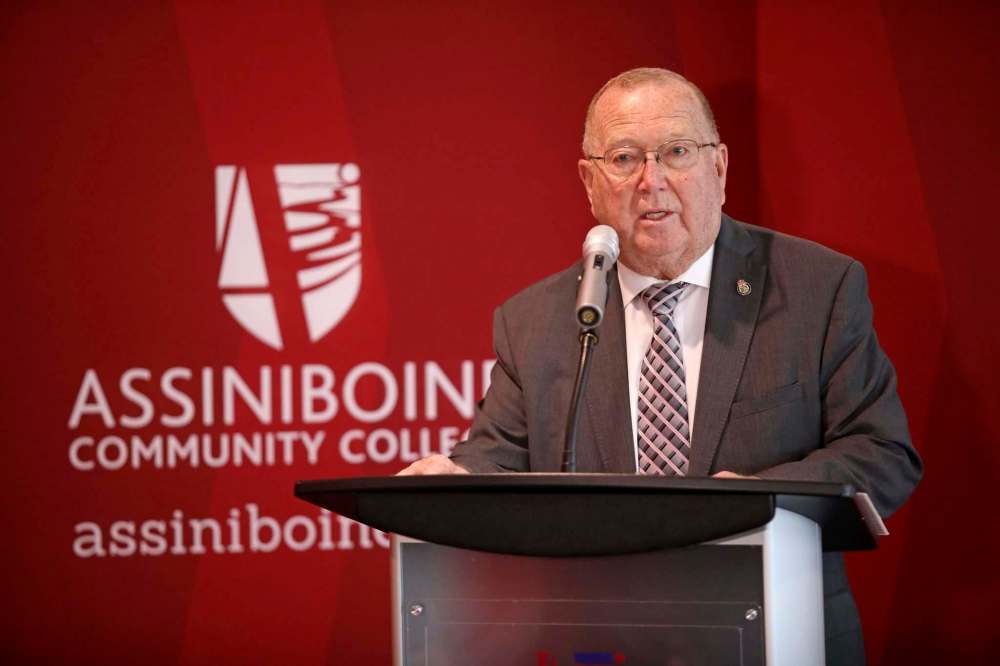Measuring the value of an education
Read this article for free:
or
Already have an account? Log in here »
To continue reading, please subscribe:
Monthly Digital Subscription
$0 for the first 4 weeks*
- Enjoy unlimited reading on winnipegfreepress.com
- Read the E-Edition, our digital replica newspaper
- Access News Break, our award-winning app
- Play interactive puzzles
*No charge for 4 weeks then price increases to the regular rate of $19.00 plus GST every four weeks. Offer available to new and qualified returning subscribers only. Cancel any time.
Monthly Digital Subscription
$4.75/week*
- Enjoy unlimited reading on winnipegfreepress.com
- Read the E-Edition, our digital replica newspaper
- Access News Break, our award-winning app
- Play interactive puzzles
*Billed as $19 plus GST every four weeks. Cancel any time.
To continue reading, please subscribe:
Add Free Press access to your Brandon Sun subscription for only an additional
$1 for the first 4 weeks*
*Your next subscription payment will increase by $1.00 and you will be charged $16.99 plus GST for four weeks. After four weeks, your payment will increase to $23.99 plus GST every four weeks.
Read unlimited articles for free today:
or
Already have an account? Log in here »
Hey there, time traveller!
This article was published 14/02/2020 (2124 days ago), so information in it may no longer be current.
Late last year, Manitoba’s post-secondary schools received mandate letters from the province outlining a new “performance-based” funding model, and the expectations of a modern institution.
“It is critical that our colleges and universities be nimble and responsive, ceasing programs that lack responsiveness and value in a modern context and building programs that deliver the skills needed for today and tomorrow,” wrote Economic Development and Training Minister Ralph Eichler in the letter, which was sent in December to Assiniboine Community College, Brandon University, Red River College, St. Boniface University, University College of the North, University of Manitoba, and University of Winnipeg.
“Together, we can contribute to achieving the outcomes of Manitoba’s economic growth action plan, meet the objectives of the forthcoming “skills, talent and knowledge strategy,” and deliver on the commitment to build 40,000 new jobs in our province.”

The letter is heavy on buzzwords, but light on how this kind of data will be measured, and how value will be assessed. Some institutions have raised concerns about whether or not a “performance-based” funding model would threaten some university programs, especially those in the humanities.
For generations, it was a widely held view that a university degree — at least, in the “higher” disciplines — was a pipeline to secure employment. And not just any kind of secure employment — high-salaried employment. A university education is not cheap; according to Statistics Canada, the average Canadian university student graduates with more than $26,000 in student debt. Many entry-level salaries aren’t much more than that. Throw in a master’s degree or a PhD, and some students will be paying off their schooling until they retire — that is, if they can afford to retire.
Of course, thinking about university this way leads to debates about the general liberal-arts education universities also provide, and about which disciplines are “useful” and “productive” and which are “useless” and “worthless.” Major in philosophy or art history? In this economy?
But somewhere along the way, some skeptical observers — including, perhaps, some currently serving in government — seem to have lost sight of the other reasons people go to university. University education can also be about expanding, changing and shaping minds; about fostering curiosity and critical thought. About learning to work collaboratively, to meet deadlines, to problem-solve.
Those, too, are resumé-worthy qualities. Education for the sake of higher learning and training for the workforce are not mutually exclusive pursuits. Regardless of a student’s declared major, universities encourage the development of so-called soft skills: communication, discipline, flexibility, adaptability, the ability to quickly synthesize and summarize information.
The paths people follow from the hallowed halls of university to the workforce are not always linear. Yes, some people go to nursing school and move directly into rewarding careers as nurses. But some people get degrees in history and literature and become CEOs of social-media giants (as in the case of YouTube’s Susan Wojcicki).
Which is why the province should be very clear about what the metrics are, how it is measuring them, and what, exactly, distinguishes a high-performing program from a low-performing one. Tying an academic discipline’s value to the labour market might not be so straightforward. Degrees are not guarantees, especially in an age of increasing job precarity. Which is why so many students carrying a significant debt load are disillusioned about attaining that coveted “piece of paper.”
Measuring outcomes is important, but it’s also worthwhile to remember what the multi-faceted role of a university is.











